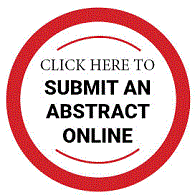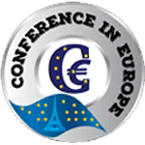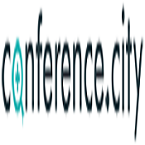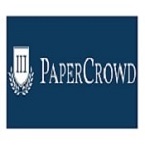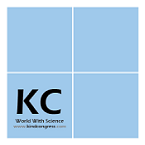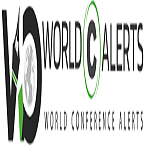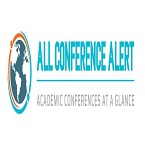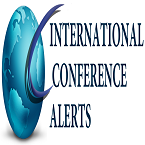Renowned Speakers

Bimal Roy Krishna
Touro University USA

Emmanuel O. Akala
Howard University USA

Alan Poole
ECETOC Belgium

Lihua Sun
Harbin Medical University China

Susan Welsh
Chief Safety Officer Sanofi USA
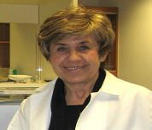
Teresa Duda
Salus University USA

Jiyoung Kim
Seoul National University South Korea

Marcel Gubler
F. Hoffmann-La Roche Switzerland
Recommended Global Pharmaceutical Sciences Webinars & Conferences
Asia Pacific & Middle East
Pharmacology 2024
Welcome Message
Dear Colleagues,
On behalf of the organizing committee, I would like to extend a warm welcome to all of you for the 37th World Congress on Pharmacology, which will be held in Dubai, UAE from February 01-02, 2024. We are excited to have you join us for this important event where industry professionals, researchers, and healthcare practitioners will gather to exchange knowledge, insights, and best practices.
Our team has carefully curated a diverse and engaging program that will explore the latest advancements, challenges, and opportunities in the field of Pharmacology. We have invited renowned experts as our speakers, who will share their expertise and cutting-edge research findings, providing invaluable perspectives on key topics.
In addition to the informative sessions and panel discussions, we have arranged interactive workshops and networking sessions to facilitate connections and collaborations among attendees. These opportunities will allow you to meet like-minded individuals, forge new partnerships, and contribute to the growth and transformation of the Pharmacology industry.
We would like to express our gratitude to our sponsors, speakers, and volunteers for their invaluable support. Their contributions make this event possible, and we are confident that the Pharmacology 2024 Congress will exceed your expectations, providing an exceptional and rewarding experience for everyone involved.
As members of the Organizing Committee, we recognize the importance of your dedication and commitment to making this event a success. Your unique skills, ideas, and perspectives will enrich our discussions and decision-making processes.
About Conference
Conference Series invites all the participants across the globe to attend 37th World Congress on Pharmacology Scheduled during February 01-02, 2024 in Dubai, UAE. This includes prompt keynote presentations, Oral talks, Poster presentations and Exhibitions.
Pharmacology 2024 focuses on the importance to understand drugs and how they can affect human physiology. It is with better understanding of Pharmacology one can know the right dosage and dosage forms of drugs. More research in pharmacology deals with identifying and responding to drug interactions and its side effects along with its mechanism of action, its therapeutic index and thereby treat accordingly. More intensive study with the interaction between drug and its therapeutic effect helps to identify the properties of ideal drugs.
Why to attend?
Join your peers around the world focused on learning about Pharmacology and related advances, which is your single best opportunity to reach the largest assemblage of participants from the Pharmacology community, conduct demonstrations, distribute information, meet with current and potential professionals, make a splash with a new research works, and receive name recognition at this 2-day event. World-renowned speakers, the most recent research, advances, and the newest updates in Pharmacology are hallmarks of this conference.
Target Audience:
- Students, Scientists, Researchers, and Faculty of Pharmaceutical Universities
- Medical Colleges, Researchers from Pharmaceutical Companies, Pharmacy Associations and Societies
- Business Entrepreneurs, Training Institutes, Software developing companies
- Manufacturing Medical Devices Companies, CRO and Data Management Companies.
Young Scientist Benefits:
- Our conferences provide best Platform for your research through oral presentations.
- Share the ideas with both eminent researchers and mentors.
- Young Scientist Award reorganization certificate and memento to the winners
- Young Scientists will get appropriate and timely information by this Forum.
- Platform for collaboration among young researchers for better development
- Award should motivate participants to strive to realize their full potential which could in turn be beneficial to the field as whole.
Sessions and Tracks
Track 01: Pharmacology
Pharmacology is a branch in science concerned with the effects of the drugs on living organisms (pharmacodynamics) and the effects of living organisms with the drugs (pharmacokinetics). This subject embodies drug composition and properties, interactions, toxicology, therapy, and medicinal uses such as application and anti-pathogenic capabilities. Pharmacology is subdivided into two categories as mentioned above, pharmacodynamics and pharmacokinetics.
Related Societies: American Association of Pharmaceutical Scientists, American Association of Pharmacy Technicians, American College of Clinical Pharmacology, American College of Clinical Pharmacy (ACCP), and American Institute of the History of Pharmacy
Track 02: Neuro Pharmacology
Neuropharmacology is the study of how drugs affect cellular function in the nervous system, and the neural mechanisms through which they influence behaviour. There are two main branches of neuropharmacology: behavioural and molecular. Behavioural neuropharmacology focuses on the study of how drugs affect human behaviour (neuropsychopharmacology), including the study of how drug dependence and addiction affect the human brain.
Related Societies: European Federation for Pharmaceutical Sciences (EUFEPS), Italian Society for Pharmaceutical Sciences (SISF), Spanish Society of Pharmaceutics and Pharmaceutical Technology (SEFC), European Behavioural Pharmacology Society (EBPS), Belgian Society of Pharmaceutical Sciences
Track 03: Toxicology
Toxicology is the scientific study of adverse effects that occur in living organisms due to chemicals. It involves observing and reporting symptoms, mechanisms, detection and treatments of toxic substances, in particular relation to the poisoning of humans. It includes environmental agents and chemical compounds found in nature, as well as pharmaceutical compounds that are synthesized for medical use by humans.
Related Societies: The Pharmaceutical Society of Australia, Kuwait Pharmaceutical Association, Maryland Pharmacists Association, Turkish Pharmacists Association, Utah Pharmaceutical Association
Track 04: Forensic Toxicology
Forensic toxicology is a specialized branch of toxicology that focuses on the analysis of substances in biological samples for legal and investigative purposes. It involves the identification and quantification of drugs, alcohol, and other toxic substances in post-mortem specimens, such as blood, urine, and tissues. Forensic toxicologists play a crucial role in determining the presence and concentration of these substances in cases involving drug overdoses, driving under the influence (DUI), workplace accidents, and suspicious deaths.
Related Societies: American Association of Pharmaceutical Scientists, American Association of Pharmacy Technicians, American College of Clinical Pharmacology
Track 05: Molecular and Clinical Pharmacology
Molecular and clinical pharmacology is a multidisciplinary field that combines the study of molecular mechanisms of drugs with their clinical applications. It focuses on understanding how drugs interact with specific molecules, such as receptors or enzymes, at the molecular level to produce their therapeutic effects. This knowledge is then translated into clinical practice to optimize drug therapy for patients. Molecular pharmacology investigates the mechanisms of drug action, including drug-target interactions, signal transduction pathways, and genetic factors that influence drug response.
Related Societies: European Federation for Pharmaceutical Sciences (EUFEPS), Italian Society for Pharmaceutical Sciences (SISF), Spanish Society of Pharmaceutics and Pharmaceutical Technology (SEFC), European Behavioural Pharmacology Society (EBPS), Belgian Society of Pharmaceutical Sciences
Track 06: Pharmacovigilance Significance and Scope
Concept of Pharmacovigilance and its Significance enhances the impact of pharmacovigilance on patient welfare and public health and to know what is Pharmacovigilance. This track gives a brief discussion on Pharmacovigilance role in healthcare system. Pharmacovigilance legislation gives an outlook on the rules and laws to follow in Pharmacovigilance practice. The Role of Pharma industries in the improvement of Pharmacovigilance system is very crucial to maintain the safety data, Detection and Evaluation of drug safety signals through manual and medical devices reporting.
Related Societies: American Association of Pharmaceutical Scientists, American Association of Pharmacy Technicians, American College of Clinical Pharmacology
Track 07: Recent Advances in Pharmacology and Toxicology
The pharmaceutical and Toxicological industry is directly impacted by the research conducted with prescription drugs, vaccines, and OTC drugs being manufactured based on findings from the study of life sciences. Clinical trials are conducted to ensure that products being developed are tested on how well they work on individuals affected by the diseases or conditions they are created to treat.
Related Societies: American Association of Pharmaceutical Scientists, American Association of Pharmacy Technicians, American College of Clinical Pharmacology, American College of Clinical Pharmacy (ACCP), American Institute of the History of Pharmacy
Track 08: Pre-clinical and Clinical Trails
In drug development, preclinical development, also named preclinical studies and nonclinical studies, is a stage of research that begins before clinical trials (testing in humans) can begin, and during which important feasibility, iterative testing and drug safety data are collected. The main goals of pre-clinical studies are to determine the safe dose for first-in-man study and assess a product's safety profile. Products may include new medical devices, drugs, gene therapy solutions and diagnostic tools.
Related Societies: The Pharmaceutical Society of Australia, Kuwait Pharmaceutical Association, Maryland Pharmacists Association, Turkish Pharmacists Association, Utah Pharmaceutical Association
Track 09: Cardio Vascular Pharmacology
Cardiovascular Pharmacology deals with the study of the effects of drugs upon the heart or circulatory system. It mainly contributes to the safety profile of potential new drugs and provides pharmacological data that can be used for optimization of further compounds and the ultimate selection of compounds suitable for clinical development. The cardiac drugs affect the function of the heart in three main ways.
Related Societies: American Association of Pharmaceutical Scientists, American Association of Pharmacy Technicians, American College of Clinical Pharmacology, American College of Clinical Pharmacy (ACCP), American Institute of the History of Pharmacy
Track 10: Ecopharmacovigilance
In a context of severe pharmaceutical pollution, “Ecopharmacovigilance” (EPV) has been an area of novel interest. It aims to ensure that significant environmental issues associated with pharmaceuticals in the environment are identified in a timely way, and managed appropriately. EPV has become a research hotspot as a comprehensive and boundary science in Europe and North America, and regulatory requirements governing the comprehensive environmental risk assessment (ERA) of pharmaceuticals exist in these regions.
Related Societies: European Federation for Pharmaceutical Sciences (EUFEPS), Italian Society for Pharmaceutical Sciences (SISF), Spanish Society of Pharmaceutics and Pharmaceutical Technology (SEFC), European Behavioural Pharmacology Society (EBPS), Belgian Society of Pharmaceutical Sciences
Track 11: Drug Safety Testing
Drug safety testing is happening in a growing number of countries including Austria, Canada, Colombia, Mexico, the Netherlands, Switzerland, United States and the UK. This briefing discusses testing using sophisticated analytical equipment, not DIY kits that cannot identify many contaminants, or strength. Drug safety testing is happening in a growing number of countries including Austria, Canada, Colombia, Mexico, the Netherlands, Switzerland, United States and the UK.
Related Societies: The Pharmaceutical Society of Australia, Kuwait Pharmaceutical Association, Maryland Pharmacists Association, Turkish Pharmacists Association, Utah Pharmaceutical Association
Track 12: Immunopharmacology
Immunopharmacology and Immunotoxicology is a bimonthly peer-reviewed medical journal that covers preclinical and clinical studies on the regulatory effects of various agents on immunocompetent cells, as well as the immunotoxicity exerted by xenobiotics and drugs. Hence, the journal encompasses a broad range of pathologies (e.g. acute and chronic infections, allergy, autoimmunity, cancer, degenerative disorders, inflammation, and primary and secondary immunodeficiency’s).
Related Societies: American Association of Pharmaceutical Scientists, American Association of Pharmacy Technicians, American College of Clinical Pharmacology, American College of Clinical Pharmacy (ACCP), American Institute of the History of Pharmacy
Track 13: Ocular Pharmacology
Ophthalmic diseases include both those analogous to systemic diseases (e.g., inflammation, infection, neuronal degeneration) and not analogous (e.g., cataract, myopia). Many anterior segment diseases are treated pharmacologically through eye drops, which have an implied therapeutic index of local therapy. Unlike oral dosage forms administered for systemic diseases, eye drops require patients not only to adhere to treatment, but to be able to accurately perform-i.e., instill drops correctly.
Related Societies: American Association of Pharmaceutical Scientists, American Association of Pharmacy Technicians, American College of Clinical Pharmacology, American College of Clinical Pharmacy (ACCP), American Institute of the History of Pharmacy
Track 14: Clinical Pharmacy and Pharmacotherapeutics
Clinical pharmacy is the discipline of Pharmacy where pharmacists are meant to provide patient care which helps in optimizing the use of drugs and improves health, wellness, and prevents diseases. This session is dealt with topics like basic components of clinical pharmacy practice Prescribing drugs, Reviewing drug use, Administering drugs, Counselling, Documenting professional services, Consulting, Preventing Medication Errors etc.,
Related Societies: European Federation for Pharmaceutical Sciences (EUFEPS), Italian Society for Pharmaceutical Sciences (SISF), Spanish Society of Pharmaceutics and Pharmaceutical Technology (SEFC), European Behavioural Pharmacology Society (EBPS), Belgian Society of Pharmaceutical Sciences
Track 15: Drug Screening and Discovery
All pharmaceutical researchers know the feeling. Somewhere out there must be that elusive molecule — one that will inhibit this enzyme or activate that receptor in the way they want, and without causing unwanted side-effects. But finding it is another matter. For small-molecule drugs — the mainstay of the pharmaceutical industry — time-consuming and expensive screening is needed to pick out promising candidates from the vast number of natural and synthetic compounds available.
Related Societies: Societies in Asia: The Pharmaceutical Society of Australia, Kuwait Pharmaceutical Association, Maryland Pharmacists Association, Turkish Pharmacists Association, Utah Pharmaceutical Association
Track 16: Recent Advances in Pharmacology and Toxicology
The pharmaceutical and Toxicological industry is directly impacted by the research conducted with prescription drugs, vaccines, and OTC drugs being manufactured based on findings from the study of life sciences. Clinical trials are conducted to ensure that products being developed are tested on how well they work on individuals affected by the diseases or conditions they are created to treat.
Related Societies: Societies in Asia: The Pharmaceutical Society of Australia, Kuwait Pharmaceutical Association, Maryland Pharmacists Association, Turkish Pharmacists Association, Utah Pharmaceutical Association.
Track 17: Safety Pharmacology
Safety pharmacology evaluations are an essential step in assessing acute and potentially life-threatening risks of novel pharmaceuticals as part of an IND-enabling program. Second-tier safety pharmacology studies can be used to determine mechanistic effects on vital functions and evaluate potential adverse effects on organ systems such as renal and gastrointestinal systems.
Related Societies: American Association of Pharmaceutical Scientists, American Association of Pharmacy Technicians, American College of Clinical Pharmacology, American College of Clinical Pharmacy (ACCP), American Institute of the History of Pharmacy
Track 18: Clinical Research Statistics
Statistical analysis is one of the foundations of evidence-based clinical practice, a key in conducting new clinical research and in evaluating and applying prior research. In this paper, we review the choice of statistical procedures, analyses of the associations among variables and techniques used when the clinical processes being examined are still in process. We discuss methods for building predictive models in clinical situations, and ways to assess the stability of these models and other quantitative conclusions.
Related Societies: European Federation for Pharmaceutical Sciences (EUFEPS), Italian Society for Pharmaceutical Sciences (SISF), Spanish Society of Pharmaceutics and Pharmaceutical Technology (SEFC), European Behavioural Pharmacology Society (EBPS), Belgian Society of Pharmaceutical Sciences
Track 19: Adverse Drug Reactions
Adverse drug reactions can be considered a form of toxicity; however, toxicity is most commonly applied to effects of over ingestion (accidental or intentional) or to elevated blood levels or enhanced drug effects that occur during appropriate use (e.g., when drug metabolism is temporarily inhibited by a disorder or another drug). For information on toxicity of specific drugs see the table Symptoms and Treatment of Specific Poisons.
Related Societies: American Association of Pharmaceutical Scientists, American Association of Pharmacy Technicians, American College of Clinical Pharmacology, American College of Clinical Pharmacy (ACCP), American Institute of the History of Pharmacy
Track 20: Bio Chemical Pharmacology
Biochemical pharmacology uses the methods of biochemistry, biophysics, molecular biology, structural biology, cell biology, and cell physiology to define the mechanisms of drug action and how drugs influence the organism by studies on intact animals, organs, cells, subcellular compartments and individual protein molecules. The biochemical pharmacologist also uses drugs as probes to discover new information about biosynthetic and cell signalling pathways and their kinetics, and investigates how drugs can correct the biochemical abnormalities that are responsible for human illness, thus enabling the elucidation of pathophysiological mechanisms that pave the way for further drug discover
Related Societies: The Pharmaceutical Society of Australia, Kuwait Pharmaceutical Association, Maryland Pharmacists Association, Turkish Pharmacists Association, Utah Pharmaceutical Association
Market Analysis
The pharmaceutical industry comprises of companies that are engaged in research, development, manufacture and distribution drugs for human or veterinary use. The primary function of the research-based pharmaceutical corporations is to create value by discovering and producing effective medicines, vaccines and services that improve patients’ well-being, and can be sold in markets at a profit. As well as increasing shareholder value, this contributes significantly to the quality and protection of life and helps make the world a better place. In the past 60 years, innovation and technology have driven huge improvements in global health.
Every clinical trial in Austria has to be approved by the Federal Office for Safety in Healthcare and needs a positive opinion of the ethics committee. Details on terminological definitions and on the requirements and implementation of clinical trials are set out in the Medicinal Products Act in § 2a and § 28 to § 48. The objective is to prove the effectiveness and tolerability of these forms of treatment and to improve the medical care of future patients. In principle, a distinction is made between clinical trials (intervention studies) and non-interventional studies.
Market Analysis of Global Pharmaceutical Industries
The global $1.12 trillion market in 2022, will rise at a faster clip during 2016-2020, then slow down a bit as major patent expiration take hold. It is expected that the global market declined by 1.0% in 2015, but will grow by 4.8% this year. Prescription sales excluding generics will rise 4.4% this year, and expected to reach $1.006 trillion in 2022. Generics sales will increase from $73 billion in 2015 to $115 billion in 2022, and constitute 10.2% of prescription sales at that point only 0.3 percentage points more than it is now.
The global market for drug discovery technologies and products was worth $38.4 billion in 2011. This figure is projected to reach $41.4 billion in 2012 and $79 billion in 2017, a five-year compound annual growth rate (CAGR) of 13.8%. There is a need to impede serious adverse effects caused by the drugs by enhancing drug targeting through research in pharmacology.
The global revenue for single use technology reached $1.4 billion and $1.7 billion in 2013 and 2014, respectively. This market is expected to grow at a compound annual growth rate (CAGR) of 11.7% to nearly $3.0 billion for the period 2014-2019.
The fast-growing division of the pharmaceutical market includes generics and biologics. Biologics now account for over a third of all new drugs in clinical trials or awaiting FDA approval.15 U.S generic drug sales reached an estimated $70 billion, representing a quarter of the global market, due to a large number of drugs going off-patent and healthcare reforms favoring generics. Although generics make up only 22 percent of total prescription sales, its share of filled prescriptions has risen from 19 percent in 1984 to 88 percent in 2015. The research-based pharmaceutical industry is estimated to have spent nearly USD 149.8 billion globally on pharmaceutical R&D in 2015-16. Among all the industrial sectors, the research-based pharmaceutical industry has consistently invested the most in research and development, even in times of economic turmoil and monetary crisis.
According to the QuintilesIMS Institute predicts that the pharmaceutical market by 2021 will reach nearly USD 1,485 billion, by an increase of USD 350-380 billion from the USD 1,105 billion recorded in 2016. Global brand spending is forecast to increase to USD 815-832 billion in 2021. Global generic spending is expected to increase to USD 495-505 billion by 2021.
The United States share of global spending will increase from USD 461.7 billion in 2016 to USD 645-675 billion in 2021, while the European share of spending will grow from USD 151.8 billion to USD 170-200 billion. Meanwhile, pharmerging countries will spend nearly 315-345 USD billion in 2021 from 242.9 in 2016.
Major Pharmacology Associations around the Globe
- American Academy of Veterinary Pharmacology and Therapeutics
- American Board of Clinical Pharmacology
- Argentine Society for Experimental Pharmacology
- Association of Pharmacologists of Ukraine
- Australian Physiological and Pharmacological Society
- British Association for Psychopharmacology
- Colombian Association of Pharmacology
Glance at Market of Pharmacology:
These data describe the outcome of the patient as defined in U.S.reporting regulations. Serious means that one or more of the following outcomes were documented in the report: death, hospitalization, life threatening. There is a need to impede serious adverse effects caused by the drugs by enhancing drug targeting through research in pharmacology.
Past Conference Report
Pharmacology 2023
Conference Series hosted 36th World Congress on Pharmacology executed on July 25-26, 2023 in Amsterdam, Netherlands. Active participation and generous response were received from the Organizing Committee Members, scientists, researchers, as well as experts from Non-government organizations, and students from diverse groups who made this conference as one of the most successful and productive events in 2023 from Conference series.
The conference was marked with several workshops, multiple sessions, Keynote presentations, panel discussions and Poster sessions. We received active participation from scientists, young and brilliant researchers, business delegates and talented student communities representing more than 35 countries, who have driven this event into the path of success.
We are obliged to the various delegates from companies and institutes who actively took part in the discussions. We sincerely thank the Organizing Committee Members and Editorial board of Pharmacology 2023 for their gracious presence and continuous support throughout the proceedings of this event. With the valuable feedback and generous response received from the participants of the event, Conference Series would like to announce the commencement of “37th World Congress on Pharmacology 2024”
For details Visit: https://pharmacology.pharmaceuticalconferences.com/
Past Reports Gallery
To Collaborate Scientific Professionals around the World
Conference Date February 22-23, 2024
For Sponsors & Exhibitors
Speaker Opportunity
Useful Links
Past Conference Report
Supported By
All accepted abstracts will be published in respective Conference Series International Journals.
Abstracts will be provided with Digital Object Identifier by
